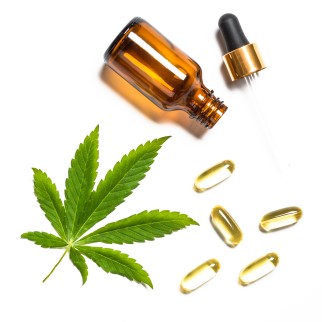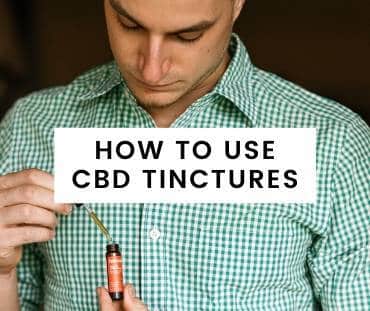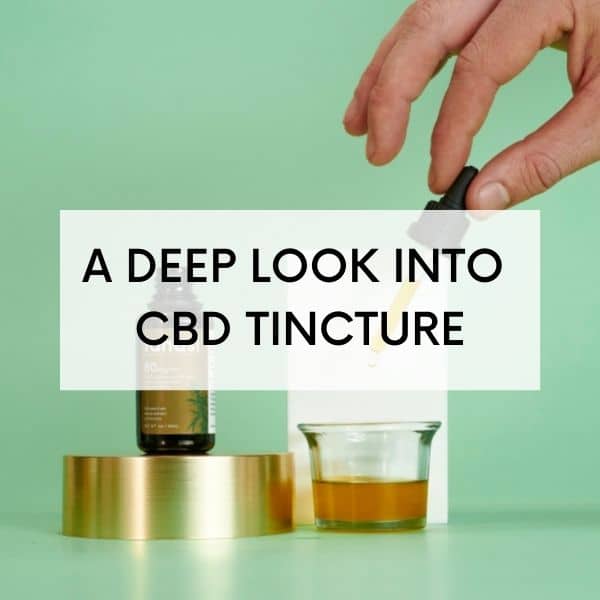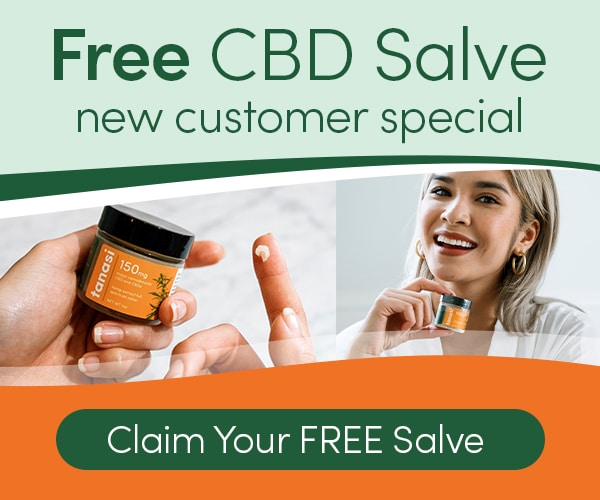What You Need To Know About CBD Tincture vs Oil
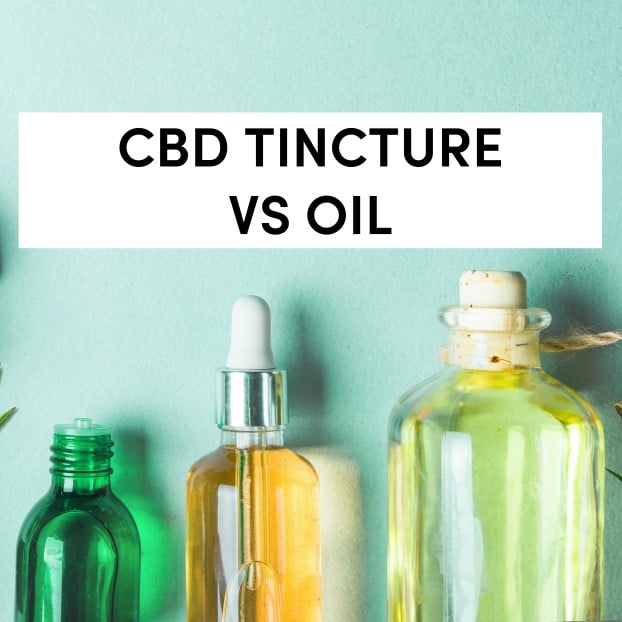
Posted on September 3rd, 2021
Choosing between CBD tincture vs oil? We’re here to help you understand the differences. CBD oils and CBD tinctures are among the most sought-after CBD products. And some companies use these terms interchangeably in product descriptions.
Now, it’s easy to see why. For starters, these two products have similar packaging and similar uses. They’re both held in tinted glass bottles and you dose both of them sublingually.
With that being said, you might be wondering: what exactly is the difference between CBD oils and CBD tincture? Well, in this article, we’ll review everything you need to know about CBD tincture vs oil.
What’s the Difference?
Despite having nearly the same packaging and uses, both products have distinct features that set them apart. Basically, that difference lies in their composition and ingredients lists. First, it’s important to note that both CBD tinctures and CBD oils offer the same potential benefits. And that’s because they contain hemp-extracted CBD. (For reference, hemp’s a variety of the Cannabis sativa L. plant.)
What Is CBD Oil?
Basically, CBD oil is a blend of cannabidiol extract obtained using the supercritical CO2 extraction method and a carrier oil like MCT oil or hemp seed oil. CBD oil may contain other compounds such as terpenes and flavonoids, along with other minor cannabinoids. Once extracted, manufacturers infuse these compounds in their chosen carrier oil. To improve the flavor, essential oils may be added to the mix.
What Is CBD Tincture?
On the other hand, CBD tinctures are alcohol-based CBD extracts. Unlike CBD oil, which uses the supercritical CO2 extraction method, this product develops using high-proof alcohol as a solvent. In this way, tinctures employ an entirely different extraction method than CBD oil.
With a tincture, high-proof alcohol becomes the main solvent agent of the process. As a result, you can easily make your own CBD tincture at home. Just soak hemp plant material in a jar of alcohol for a few days or even weeks. Keep in mind that you’ll only find CBD in hemp leaves, flowers, and stems. The seeds of the hemp plant don’t contain any CBD.
The Difference Between CBD Tincture vs Oil
The main difference between CBD tincture vs oil is that CBD tinctures use alcohol, both to extract natural compounds and as a base ingredient. Meanwhile, CBD oil uses carbon dioxide extraction, and carrier oils as base ingredients.
Thanks to the use of high-proof alcohol, tinctures have a longer shelf life than CBD oil. However, they tend to have a very bitter taste which can be off-putting to most first-time consumers. As a result, many companies mix their tinctures with additives such as sweeteners and flavors.
Do You Use Them Differently?
CBD oils and tinctures have similar application methods. Mostly, you take these products sublingually, by dosing them under your tongue. To do so, place a few drops (or a full dropper) under your tongue. Then, you hold the liquid in place for 30 seconds to a minute before swallowing.
The sublingual method allows for fast and efficient absorption. And that’s because of your tongue’s large network of capillaries. As a result, sublingual CBD goes directly to your bloodstream, bypassing your digestive tract. So, by entering your blood without undergoing metabolization, it kicks in faster than oral CBD. (Which may take up to 1 hour to feel effects.)
Others Uses
If you’re looking for topical benefits of CBD, you can also apply pure CBD oil directly to your skin. But that won’t allow the CBD molecules to enter your bloodstream. Still, this delivery method works well for localized effects. Just avoid using CBD tinctures topically, since this can lead to skin irritation.
Another way to use CBD tinctures is by adding a few drops to foods and beverages. Unfortunately, this isn’t the optimal method. And that’s because CBD oil may not mix well with liquids. Plus, it may leave your food with an off-putting oily taste.
Regardless of your product choice, it’s highly important to consult your doctor before using CBD oils or tinctures. Your doctor will help determine whether it’s safe to use your product. Especially if you’re already taking others medications.
Which Is More Popular?
In the CBD tincture vs oil debate, both offer similar benefits. But, for the most part, CBD oil is more popular. Besides being preferred for its taste, you can use CBD oil orally and topically. And that makes it more versatile than a CBD tincture.
Still, you may choose a CBD tincture if you don’t love the taste or feel of an oil. It’s also the better option if you want to add CBD to foods and beverages.
Is One More Effective Than the Other?
Due to the presence of alcohol, CBD tinctures have higher bioavailability compared to CBD oil. The alcohol allows for a faster CBD absorption rate. The actual oil in CBD oil makes it harder for our bodies to absorb the active molecules. Various tests show that, when taken orally, your body only absorbs about 5-10% of the CBD oil you consume.
At the same time, CBD oil typically contains more active CBD compared to CBD tinctures. So your CBD oil may offer the same benefits, but come at a slightly more expensive price.
What different carrier oils are used?
CBD oils generally consist of two main ingredients: CBD and a carrier oil. CBD, in its purest form, looks like a group of crystals. Now, your body can’t properly absorb or metabolize CBD. So the CBD isolate must be infused in a carrier oil. And there are several choices for that carrier oil:
- Medium-Chain Triglyceride (MCT) coconut oil
- Hemp seed oil
- Olive oil
While both hemp seed oil and olive oil can serve as effective carrier oils, MCT oil is optimal. That’s because MCT oil’s scientific profile allows for optimal digestion and absorption in the human body.
Info on the CBD extraction process: CBD tincture vs oil
Perhaps the biggest difference between CBD oil and CBD tinctures lies in their extraction methods. For CBD oil, supercritical CO2 is the most preferred method of CBD extraction, while for CBD tinctures, the CBD is extracted by using alcohol as the solvent. The plant material is soaked in alcohol to extract and dissolve the compounds.
CBD Oil: Supercritical CO2 Extraction Method
While various methods can be used for extracting CBD when preparing CBD oil, this is by far the best and safest method of CBD extraction. Here, the cannabis plant material is allowed to sit in CO2, after which the extract is distilled to separate the individual compounds. The extract basically undergoes two distillation processes: winterization and short path distillation.
In the winterization phase, all the undesired components extracted from the plant are removed. In this process, alcohol is mixed with the oil then frozen through the night. The mixture is then filtered to get rid of all fats and undesired components. To remove the alcohol, the solution is warmed.
The short path distillation is the last stage of the supercritical CO2 extraction method. Here, the solution is heated at different set temperatures. This is meant to separate all the individual compounds as they all have different boiling temperatures.
Benefits of CBD?
CBD offers users a wide range of potential health benefits. In addition, it doesn’t have the psychoactive effects associated with THC, another popular cannabinoid. This makes it an ideal choice for those seeking a natural and effective health supplement.
While it is not yet clearly understood how exactly CBD works in the body, we believe that it produces effects by influencing the endocannabinoid system (ECS). The ECS is a complex nerve cell signaling system present in the human body. Aand it’s responsible for regulating a wide range of bodily functions, ensuring cognitive, physiological, and emotional balance.
Here are some of the reported benefits of CBD, all still under investigation:
- Provides relief for pain and inflammation.
- Help to treat epilepsy and seizures.
- Can help to improve one’s mood.
- Helps to treat stress and anxiety.
- Helps to treat symptoms of arthritis.
- Can help to treat sleep disorders.
- Helps to relieve nausea and anxiety.
- Can help to treat symptoms arising from cancer treatment and can help to stop the progression of certain types of cancers.

